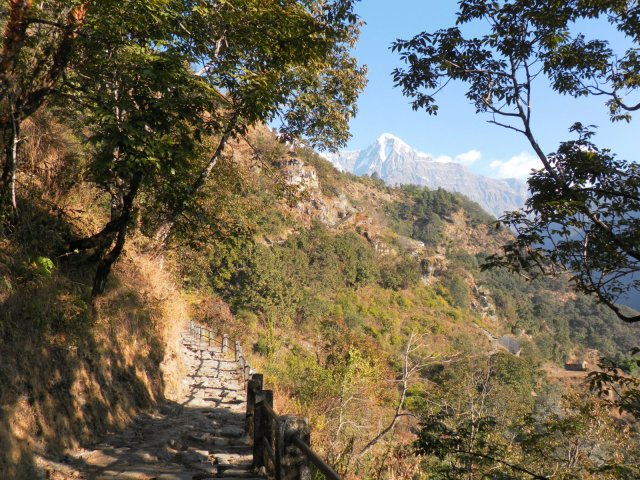Happiness – or at least the ill-starred search for it – seems to very nicely explain the entire painful span of human history, and certainly the primary impulse in almost every individual life. My own early years came under the spell of Hemingway’s persuasive novels, his full immersion in bullfights, big game hunts, trawling the high seas for marlin, war journalism and perilous undertakings, and I began my own peregrinations with a kind of seaside romance with adventure and travel. Hemingway’s later suicide was perhaps a powerful and damning obituary to all this – but undeterred I forged on.
In Mexico, I finally attended a bullfight and watched the ritual slaughter of nine magnificent animals – but left feeling amazed at what seemed the depravity of my kind and the sense that the era of the Christians and the lions, its savagery, was still very close. The pathos and courage of the bulls scalded my heart, while all around me the crowd roared their approval and chanted “Ole! Ole!” just as they did in Hemingway’s novels – and so here we parted company.
Travel too failed to erase that fretfulness of the searching heart. I wandered from place to place, a rite of passage for those of us born in remote places, toting always the ineradicable personal baggage of purposelessness and discontent, the Greek poet Cavafy’s pronouncement ringing in my mind: “No ship exists to take you from yourself!”
Later, taking refuge from a London winter inside the Wimbledon Public Library, I stumbled upon Albert Camus, existentialism and the myth of Sisyphus – the Greek anti-hero condemned by the gods to endlessly push a boulder up a mountain, only to see it roll back down each time he reached the top. “His scorn of the gods, his hatred of death, and his passion for life won him that unspeakable penalty in which the whole being is exerted toward accomplishing nothing. This is the price that must be paid for the passions of this earth,” writes Camus.
It seemed an exact metaphor of my own life. Camus’ essay was all about happiness – how to find it in a world wherein we struggle, suffer and die, without finding any real meaning in our existence or without someone to explain this condition to us. But “one does not discover the absurd without attempting to write a manual of happiness…. Happiness and the absurd are two sons of the same earth,” he writes.
“He knows himself to be the master of his days. At that subtle moment when man glances backward over his life, Sisyphus returning toward his rock, in that silent pivoting he contemplates that series of unrelated actions which becomes his fate, created by him, combined under his memory’s eye and soon sealed by his death…. Each atom of that stone, each mineral flake of that night-filled mountain, in itself forms a world. The struggle itself toward the heights is enough to fill a man’s heart. One must imagine Sisyphus happy.”
I was content with this, finally at ease with purposelessness and the utter insignificance of my life, and feeling now unburdened by possessing this knowledge. But philosophy is often at odds with the deeper purpose of our soul, and the sense of other imminent discoveries stirred inside me. We seem to attract like a magnet the people, books, clues, experiences we next need – or are they gifted to us? – and now I was introduced to Eastern spirituality.
In New Zealand, a summer long ago, sitting on a remote beach in the Queen Charlotte Sounds and soothed by a wide blue canopy of sky and an endless prospect of water, I tried my first attempt at meditation. Simply sitting, simply “being,” seemed strange yet also familiar, a different kind of void from Camus’ emptiness. I was peering into a great silence and wondering what lay waiting, and there came the sense of remembering something again, as though from the long strand of other lives.
Now, years later, for me happiness is simply an achievement of consciousness – not a certain person or a certain place, not in what I possess or in what I do, not in penury or plenty, not in anything external at all. The prolonged practice of meditation has brought an increasing desirelessness, freedom from expectation, inner sufficiency and life simplicity. It disentangles us from the cultural imperatives of success, wealth, acquiring, ambition – the great pervasive lies about happiness – and helps us to recognize and travel our own very special life path, alone when necessary and always with courage.
In late 1980 I had the ultimate good fortune to meet a living spiritual master. The Indian teacher Sri Chinmoy took me upward and onward to new levels, cleared away many of the blocks and misunderstandings in my practice, gave me glimpses of a delight and freedom that I came to understand were experiences of my own soul. And he kindled within me a love of God – no mean feat given my agnostic family tradition – and charted out a path, the steps I have now chosen to take.
For those seeking happiness – “Everyman” – and starting out on their own journeys of discovery, The Jewels of Happiness by Sri Chinmoy will provide a wonderful map and an inspirational, tireless companion to point the way home.

